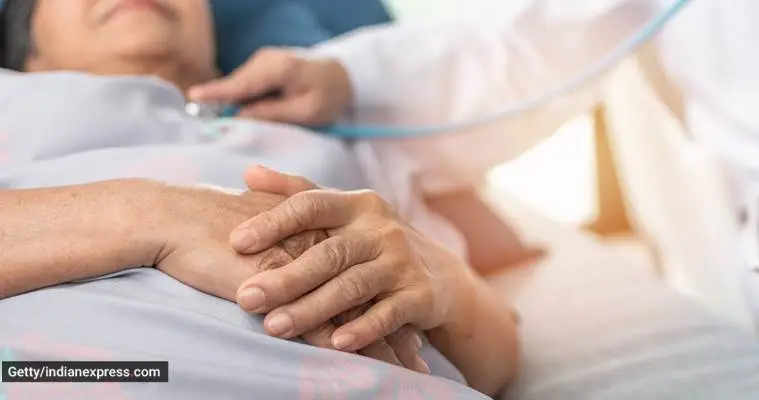Syncope or passing out happens when the heart stops pumping blood effectively during excessively fast or slow heart rates, which prevents or reduces the circulation of blood to the brain.

When it comes to health, nothing can be overruled, especially when it comes to matters of the heart. Doctors always advise patients to be regular with their health screenings, so that any anomaly can be quickly detected and decimated. Among other things, fainting spells have become a topic of discussion now, because while it could happen because of a variety of reasons, in some cases, it can be indicative of something serious, too.
“Being aware of the warning signs of a heart disorder and seeking timely medical intervention is crucial to prevent or treat heart diseases. Very often, people can lose their lives because of the lack of identification of symptoms leading to a delay in treatment. One such symptom is syncope or fainting, which is the primary warning sign of a serious cardiac arrythmia,” says Dr Kapil Kumawat, senior consultant, cardiology & EP, Narayana Health, adding that of the total causes of syncope, arrythmias contribute to 33 per cent of it.
ALSO READ | COVID-19 lockdown can worsen obesity issues in children, suggests study
But, what is arrhythmia?
“An irregular heartbeat is an arrhythmia (also called dysrhythmia). A normal heart rate is 50 to 100 beats per minute. Arrhythmias and abnormal heart rates don’t necessarily occur together. Arrhythmias can occur with a normal heart rate, or with heart rates that are slow (called bradyarrhythmia — less than 50 beats per minute). Arrhythmias can also occur with rapid heart rates (called tachyarrhythmias — faster than 100 beats per minute).
“Syncope or passing out happens when the heart stops pumping blood effectively during excessively fast or slow heart rates, which prevents or reduces the circulation of blood to the brain. This leads to a sudden and transient loss of consciousness which is called as syncope,” Dr Kumawat explains.
ALSO READ | Just 10 minutes on a treadmill can affect your body: Study

But fainting spells are common; so what should people keep in mind?
One out of two people experience syncope or fainting during their lifetime. It can occur both in people with a healthy heart, as well as those with heart diseases. Syncope in presence of healthy heart is usually not life-threatening. People with an increased risk of death are those with a family history of sudden death, underlying heart disease with poor pump function such as coronary artery disease and heart muscle disease (cardiomyopathies), congenital heart defects, and those with a condition in the electrical conduction system of the heart, the doctor explains.
“Syncope occurs across age groups, but the causes vary depending on the age of the person. It is common in older people (over the age of 55) and it requires immediate attention. But, no age group is immune to syncope with cardiac cause being the most common,” he says.
“Often, fainting is improperly diagnosed as a fit or epilepsy, and the affected person undergoes tests such as CT scan, MRI, and neurological evaluation coupled with improper therapy. Some cases of syncope are potentially fatal and cardiac causes of syncope have the highest mortality rates,” adds Dr Kumawat.
ALSO READ | How to promote healthy living and better immunity in young adults
He says syncope is managed by lifestyle changes, medications, and electrical therapies depending on the underlying causative, and that the diagnostic evaluation of a faint is based on the detailed history — thorough physical examination, electrocardiogram (ECG), long term rhythm monitoring to correlate the symptoms with the ECG abnormality, and specific test to evaluate the electrical conduction system.
“Syncope should not be ignored as no episode of loss of consciousness is normal. While the causes of fainting are commonly believed to be neurological, the real reason is usually cardiac in nature. One must, therefore, visit a ‘cardiac electrophysiologist’, that is, a heart rhythm expert, for diagnosis, differentiating dangerous from not-so-dangerous faints and proper treatment,” he remarks.
? The Indian Express is now on Telegram. Click here to join our channel (@indianexpress) and stay updated with the latest headlines
For all the latest Health News, download Indian Express App.
Source: Read Full Article



